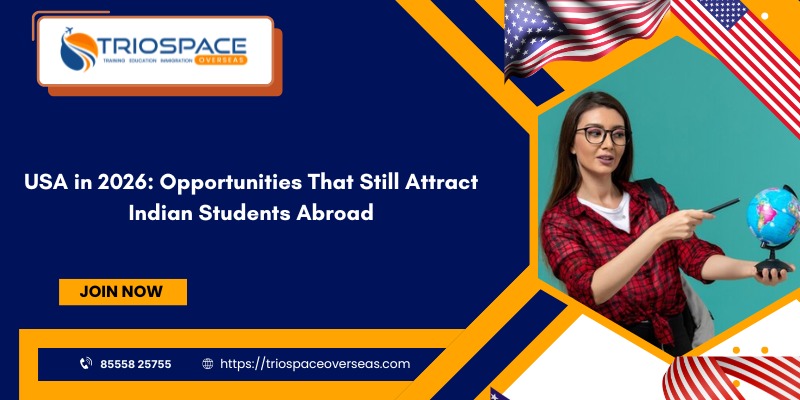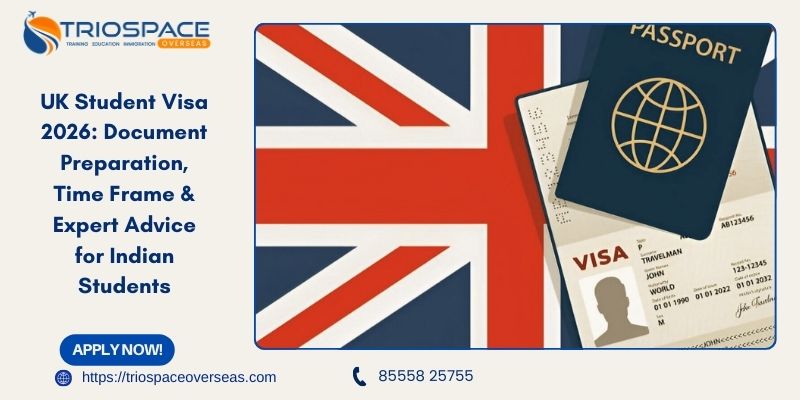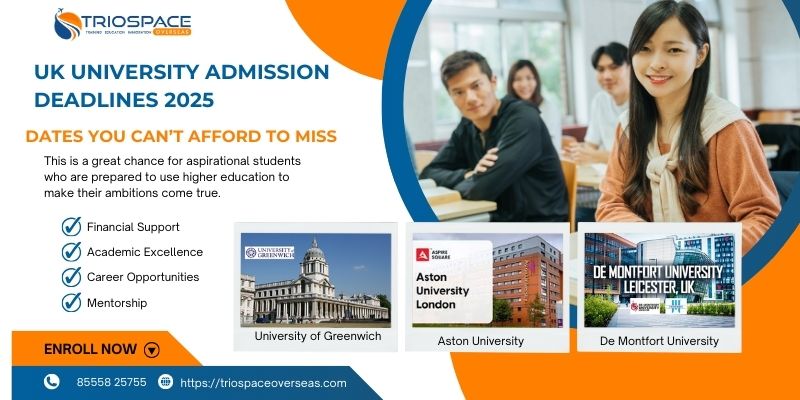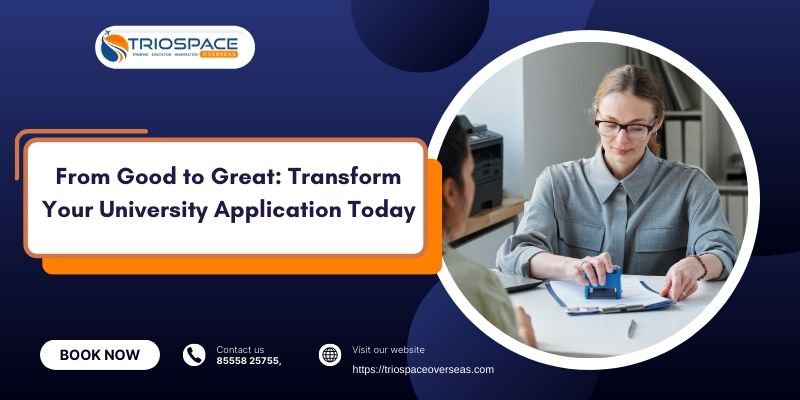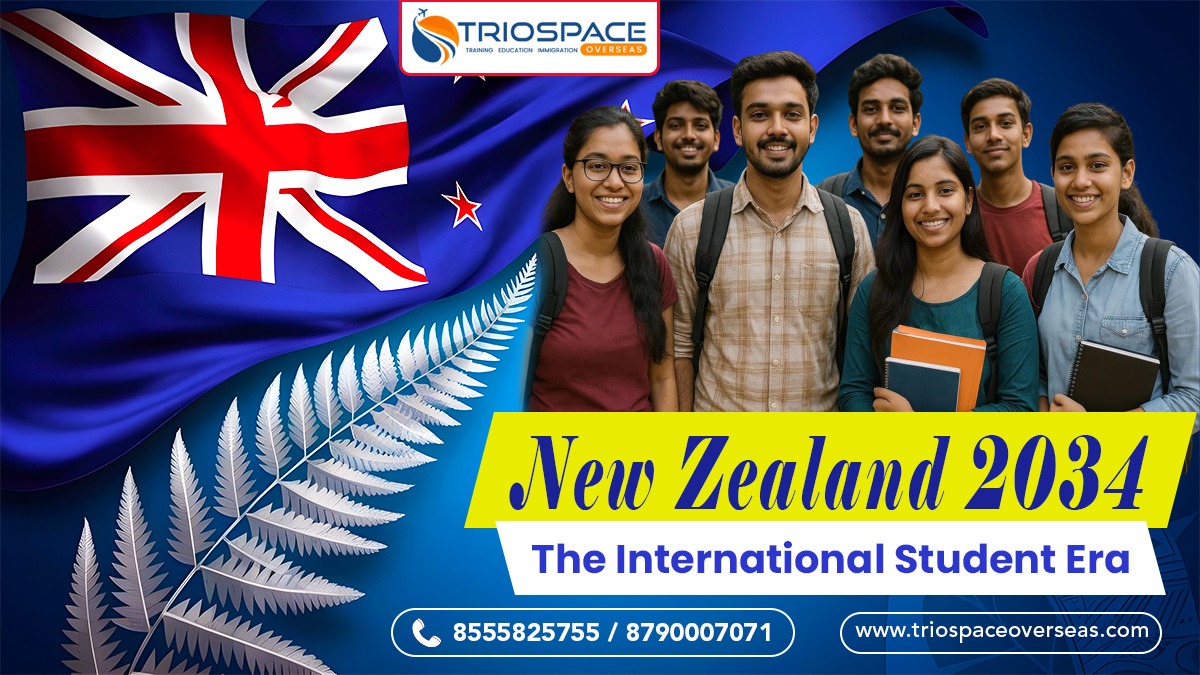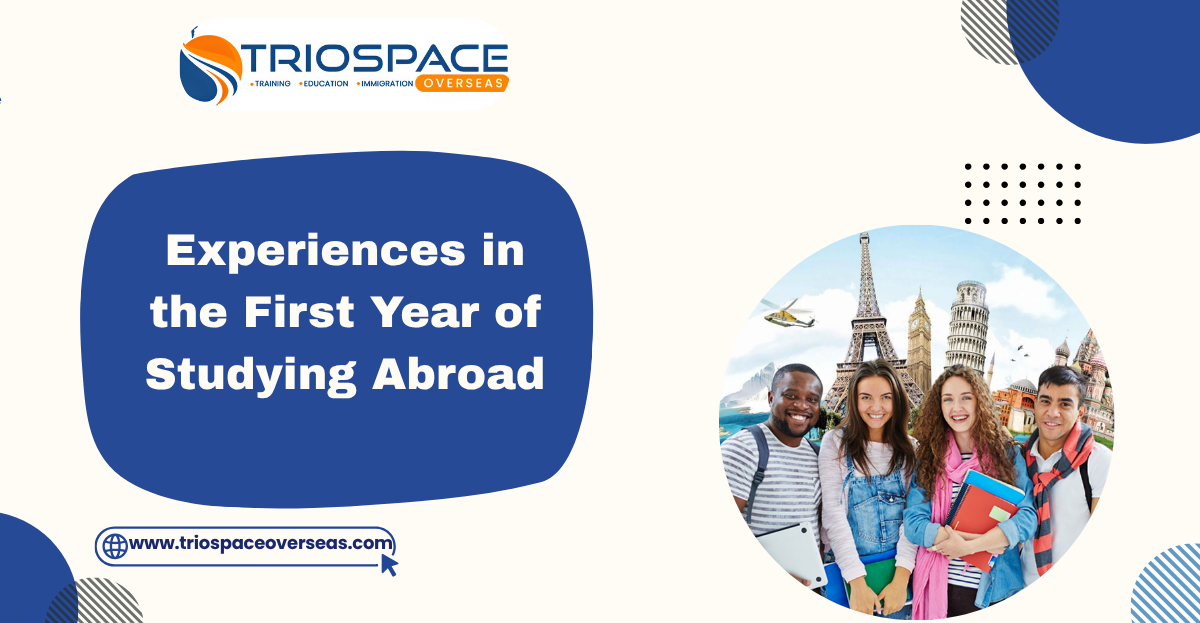
Beyond the Big 4: Emerging Study Destinations for Indian Students with Great ROI and PR Pathways
Table of Content
ToggleAre you an Indian student dreaming of studying abroad, but feeling overwhelmed by the rising costs, fierce competition, and changing rules in popular countries like the US, UK, Canada, and Australia? You’re not alone. Many bright minds like yours are looking for smarter, more accessible paths to a global education and a brighter future.
The good news? The world is bigger than just a few well-trodden paths There’s a whole new set of exciting, high-quality, and often more affordable places waiting to welcome you. These are the emerging study destinations for Indian students – countries that offer fantastic value for your money (that’s “Return on Investment” or ROI), clear ways to settle down after your studies (that’s “Permanent Residency” or PR), and a truly enriching experience.
This blog post is your ultimate guide to these hidden gems. We’ll explore why it’s smart to look beyond the usual suspects, help you figure out what truly matters for your study abroad journey, and then take a deep dive into 8 incredible countries that could be your perfect match. Get ready to discover new horizons and unlock your global dreams!
Why Look Beyond the Big 4? The Shifting Landscape
For years, the United States, United Kingdom, Canada, and Australia have been the go-to choices for Indian students wanting to study abroad. They offered world-class universities, English-speaking environments, and seemingly clear pathways to jobs and settlement. It was the “Big 4” dream.
But times are changing, and so is the reality of studying in these traditional destinations. What once seemed like a straightforward path has become much more challenging, leading many Indian students to feel frustrated and even rethink their plans.
The Traditional Dream vs. The New Reality
Imagine a bustling highway. For a long time, everyone wanted to drive on the same four lanes. Now, those lanes are getting incredibly crowded, and the tolls are going up!
1. Soaring Costs
Let’s talk about money. Tuition fees in the US, UK, Canada, and Australia have soared. What might have been affordable a decade ago is now a massive financial burden for many Indian families. And it’s not just tuition; living expenses, rent, food, transport have also gone through the roof in major cities in these countries. This means your hard-earned rupees stretch less and less, making the dream feel out of reach for many.
2.Intense Competition:
Because so many students apply to these same few countries, getting into a good university has become incredibly competitive. Even with excellent grades, securing a spot can be a huge challenge. It’s like trying to get a seat in a popular concert there are far more fans than tickets
3. Policy Changes & Visa Hurdles:
This is a big one. Governments in some of these traditional countries have started making changes to their immigration rules. For example, Canada recently put a cap on new study permit applications, making it harder for many Indian students to get approval. The UK has also made changes to rules around bringing family members (dependents) for postgraduate students, which affects many. Australia has also seen shifts in its visa policies. These changes create uncertainty and can make long-term planning very difficult. What seemed like a clear path to PR yesterday might be a dead end tomorrow.
The Growing Importance of ROI and PR
For Indian students and their families, studying abroad isn’t just about getting a degree; it’s a significant investment. You’re putting in a lot of money, time, and effort, and you expect a good “Return on Investment” (ROI). This means:
A.Good Jobs: Will your degree lead to a well-paying job that helps you pay back your education loan and build a comfortable life?
- Career Growth: Will you have opportunities to grow in your chosen field?
- Value for Money: Are you getting quality education and life experience without breaking the bank?
Beyond jobs, the desire for “Permanent Residency” (PR) is a huge driving factor. Many Indian students dream of settling abroad long-term, building a life, and perhaps even bringing their families. A clear and achievable PR pathway is often as important as, if not more important than, the university’s ranking. When PR pathways become uncertain or too difficult in traditional countries, it forces students to look elsewhere.
The Need for Alternatives: A Smart Strategy
All these challenges mean that sticking only to the “Big 4” might not be the smartest move anymore. It’s time to be strategic, open your mind, and explore the fantastic opportunities available in other parts of the world. These emerging study destinations for Indian students are not just “backup plans”; they are often superior choices, offering:
1. More Affordable Options: Lower tuition fees and living costs.
2. Less Competition: Easier access to quality universities and programs.
3. Clearer PR Pathways: More straightforward routes to long-term settlement.
4. Unique Cultural Experiences: A chance to learn a new language and immerse yourself in a different way of life.
5. Strong Job Markets: Growing economies with a demand for skilled professionals.
By looking beyond the familiar, you can find a path that aligns better with your financial goals, career aspirations, and long-term dreams. It’s about finding the right fit for you, not just following the crowd.
Understanding Your Priorities: What Matters Most?
Before you dive into exploring new countries, take a moment to think about what truly matters to you. Studying abroad is a big decision, and what’s perfect for one student might not be for another. By understanding your own priorities, you can make a choice that truly fits your dreams and goals.
Think of it like planning a big trip. Do you want a budget-friendly adventure, a luxury getaway, or a trip focused on exploring nature? Your answer changes where you go!
Here are the key things Indian students usually care about when choosing a study abroad destination:
Priority 1: Financial Viability – Can You Afford It?
This is often the first and biggest question. International education is an investment, and you need to make sure it’s one you can manage without too much stress.
A. Tuition Fees: How much will your courses cost each year? Some countries have very low or even free tuition at public universities, while others can be quite expensive. Remember to check if there’s a difference for international students compared to local students.
B. Living Expenses: Beyond tuition, you’ll need money for rent, food, transport, books, and fun activities. These costs can vary wildly from city to city, even within the same country. A big city like Paris will be much more expensive than a smaller town in Poland, for example.
- Scholarships & Funding: Are there scholarships available specifically for Indian students, or for your chosen field of study? Many universities and governments offer grants that can significantly reduce your financial burden. Don’t forget to look into education loans from banks in India.
- Part-time Work Opportunities: Can you work while you study? Most countries allow international students to work a certain number of hours per week (e.g., 20 hours). This can help cover your daily expenses and give you valuable work experience.
Priority 2: Career Prospects & Earning Potential – What Happens After Graduation?
You’re investing in your education to build a better career. So, it’s crucial to think about what happens after you get your degree.
A.Job Market: Is there a demand for your skills in that country? Are there jobs available in your chosen field? Some countries have booming tech sectors, while others might be strong in healthcare or manufacturing.
B. Average Salaries: What kind of salary can you expect to earn after graduation? This will help you understand your “Return on Investment” (ROI) how quickly you can pay back your loan and start saving.
C.Internship Opportunities: Do universities have strong ties with industries? Internships are a fantastic way to gain practical experience and make connections that can lead to full-time jobs.
Priority 3: Permanent Residency (PR) & Global Mobility – Can You Stay Long-Term?
For many Indian students, studying abroad is the first step towards building a life in a new country. If long-term settlement is your goal, this priority is super important.
A. Post-Study Work Visas: After you graduate, how long can you stay in the country to look for a job and gain work experience? This visa is your bridge from student life to professional life.
B. PR Pathways: Are there clear and achievable routes to getting permanent residency? Some countries have points-based systems, while others require a certain number of years of work experience.
- Citizenship: If your ultimate goal is to become a citizen of that country, understand the requirements and timelines involved.
Priority 4: Quality of Life & Support Systems – Will You Be Happy There?
Beyond academics and careers, your daily life and well-being matter a lot.
A. Cultural Adaptation: How different is the culture from India? Are you ready to adapt to new social norms, food, and ways of life?
B. Language: Is English widely spoken, or will you need to learn a new language? Even if your course is in English, knowing the local language can make daily life much easier and help you integrate.
- Student Support: What kind of support does the university offer international students? This includes everything from academic help to counseling services and career guidance.
- Indian Communities: Are there existing Indian student communities or cultural groups that can help you feel at home?
- Safety & Well-being: Is the country safe? What are healthcare facilities like? How easy is it to get health insurance?
- Housing: Is it easy to find affordable and safe accommodation? Some popular cities face housing shortages, which can be a big challenge.
By thinking about these priorities, you’ll be better equipped to evaluate the emerging study destinations for Indian students we’re about to explore. Each country has its unique strengths and challenges, and the “best” one is always the one that best matches your personal goals.
The New Horizons: Emerging Study Destinations for Indian Students
Now, let’s dive into the exciting part. We’ve identified 8 incredible emerging study destinations for Indian students that offer fantastic opportunities beyond the traditional choices. For each country, we’ll break down its unique advantages, what you can expect in terms of costs and earnings, how you can potentially gain permanent residency, and what challenges you might face along with practical solutions.
1. Germany: The Land of Innovation and Free Education
Germany has quickly become a top choice for Indian students, and for very good reasons! It’s known for its world-class engineering and technology programs, strong economy, and incredibly low tuition fees.
Why Germany is Emerging:
Germany is a powerhouse of innovation, especially in fields like engineering, automotive, and technology. Its universities are highly respected globally, and many public universities offer education for free, even for international students! This makes it an incredibly attractive option for Indian students looking for quality without the hefty price tag. The country also has a strong focus on research and development, offering great opportunities for those interested in cutting-edge fields.
ROI Potential:
A. Tuition Fees: This is Germany’s biggest draw! Most public universities charge no tuition fees for undergraduate or postgraduate programs. You only pay a small “semester contribution” which is usually between €150-€300 (around INR 13,500-27,000) per semester. This covers administrative costs and often includes a public transport pass. Private universities do charge fees, ranging from €2,000-€20,000 (around INR 1.8 lakhs to 18 lakhs) per year, but even these can be more affordable than many options in the “Big 4.”
B. Living Costs: On average, you can expect to spend around €850-€1,200 (around INR 72,250-102,000) per month. This covers rent, food, transport, health insurance, and personal expenses. Cities like Munich and Berlin might be on the higher side, while smaller towns are more affordable.
C. Scholarships: While tuition is often free, scholarships like the DAAD (German Academic Exchange Service) are very popular. They offer monthly stipends (around €861 for Master’s students) that can significantly help with living costs. Many universities also offer their own scholarships.
D. Average Graduate Salaries: Germany has a robust job market. Graduates, especially in STEM fields (Science, Technology, Engineering, Mathematics), find excellent opportunities. Average annual salaries for Master’s graduates can range from €46,000 to €110,000 (around INR 40.1 lakhs to 95.9 lakhs). Top roles like Automation Engineer can even command over €123,000 (over INR 1.07 crore) annually. Sectors like IT, engineering, healthcare, and finance are booming.
PR Pathways:
Germany offers a clear path to permanent residency, which is a huge plus for Indian students.
A. Post-Study Work Visa: After you graduate, you get an 18-month “job-seeking visa.” This gives you plenty of time to find a job that matches your qualifications.
PR Process: Once you secure a skilled job, you can apply for a “Settlement Permit” (Permanent Residency). The best part? The time you spent studying in Germany can be counted towards the five-year residency requirement for PR. This means you could potentially get PR in as little as two years after starting your skilled job, if your study period helps you reach the five-year mark faster.
Key Challenges & Solutions
While Germany is fantastic, it’s good to be prepared for a few things:
- Language Barrier: Even if your course is in English, daily life often requires some German.
- Solution: Start learning basic German before you go! Many universities offer free or affordable German language courses. Don’t be afraid to practice with locals.
- Housing Crisis: Finding affordable accommodation, especially in popular cities, can be tough.
- Solution: Start your search very early (3-6 months before arrival). Look into student dorms, shared flats (called “WGs”), and use university international offices for help. Triospace Overseas can also guide you on reliable housing platforms and strategies to secure accommodation before you land.
- Cultural Adaptation: German society can be more formal and private than what you might be used to.
- Solution: Be open-minded! Join university clubs, participate in orientation activities, and try to understand local customs. Germans value punctuality and direct communication.
- Academic Pressure: German universities emphasize independent learning and self-study.
- Solution: Develop good time management skills. Utilize campus services like writing centers and peer tutoring. Form study groups with classmates.
- Homesickness: It’s natural to miss home.
- Solution: Stay connected with family, but also actively build new routines and friendships. Explore your new city, try local food, and find Indian communities or restaurants if that helps you feel comfortable.
Triospace Overseas
Navigating the German university application process, understanding visa requirements, and preparing for life in a new country can feel like a lot. This is where Triospace Overseas can be your trusted partner. We provide expert guidance on selecting the right German universities and programs that match your academic profile and career goals.
Our team helps you with the meticulous application process, ensuring all documents are perfect. We also offer comprehensive visa assistance, making sure you understand every step. Furthermore, our pre-departure briefings cover crucial aspects like finding accommodation, understanding German culture, and managing finances, giving you a smooth start to your German adventure.
2. Ireland: Europe’s Tech Hub with a Welcoming Vibe
Ireland, the Emerald Isle, is rapidly becoming a magnet for Indian students, especially those with a passion for technology. It’s an English-speaking country with a booming tech industry and a reputation for being incredibly welcoming.
Why Ireland is Emerging:
Ireland is often called the “Silicon Valley of Europe.” It’s home to the European headquarters of over 1,000 multinational tech giants like Google, Apple, Amazon, Microsoft, and Facebook. This means incredible job opportunities in high-demand fields. The Irish education system is known for its practical approach, ensuring graduates are ready for the real world. It’s an English-speaking country, which makes the transition easier for many Indian students.
ROI Potential
A. Tuition Fees: Tuition fees for non-EU students vary. For undergraduate programs, expect to pay around €9,000-€45,000 (around INR 8.1 lakhs to 40.5 lakhs) per year. For postgraduate programs, it’s typically €9,150-€37,000 (around INR 8.2 lakhs to 33.3 lakhs) annually. While not free like Germany, these can still be more competitive than the “Big 4” for the quality of education and job prospects.
B. Living Costs: Average monthly living expenses range from €1,000-€1,500 (around INR 90,000-135,000), with Dublin being the most expensive city. Other cities like Cork or Galway can be more affordable. Overall, the average monthly cost, including rent, is about €1,478 (around INR 1.3 lakhs).
C. Scholarships: The Irish government offers the prestigious Government of Ireland International Education Scholarships, which cover full tuition and provide a monthly stipend. Many Irish universities also offer their own scholarships and bursaries for international students.
D. Average Graduate Salaries: With so many tech companies, salaries in Ireland are very competitive. Master’s graduates can expect to earn between €45,000-€60,000 (around INR 40.5 lakhs to 54 lakhs) annually. Specific tech roles like Software Developer can command €45,000-€80,000+ (around INR 40.5 lakhs to 72 lakhs) per year. High-demand fields include Computer Science, Data Science, Software Engineering, Cybersecurity, and Biotechnology.
PR Pathways
Ireland offers a very attractive post-study work visa, making it easier to gain experience and potentially settle down.
A. Post-Study Work Visa: After completing a postgraduate degree (Master’s or PhD), you are eligible for a 2-year “Stamp 1G” visa. This allows you to stay and work full-time in Ireland, gaining valuable professional experience.
B. PR Process: After working for five years on a Critical Skills Employment Permit (for highly skilled jobs) or a General Employment Permit, you can apply for permanent residency. Ireland is known for having one of the more straightforward PR processes among international study destinations.
Key Challenges & Solutions
- Housing: Finding affordable accommodation, especially in Dublin, can be competitive.
- Solution: Start your search 2-3 months before you arrive. Look into university accommodation for your first year, and explore reliable platforms like Daft.ie for private rentals. Consider shared accommodation to save costs.
- Accent/Slang: The Irish accent and local slang can take some getting used to.
- Solution: Don’t be shy to ask people to repeat themselves. Watch Irish TV shows or movies, and join university conversation clubs to get used to the local way of speaking.
- Visa Compliance: It’s crucial to follow all visa rules and renewal deadlines.
- Solution: Keep track of your visa expiry date and start the renewal process well in advance. Your university’s international student office is your best friend for guidance.
- Academic System: Irish universities emphasize independent thinking and active participation.
- Solution: Practice good time management. Don’t hesitate to ask questions in class and seek help from tutors or academic advisors if you’re struggling.
- Homesickness: Missing home is a common feeling.
- Solution: While staying connected with family is important, also make an effort to engage with your new environment. Join Indian student associations, participate in campus activities, and explore Ireland’s beautiful landscapes.
Triospace Overseas
Choosing the right tech program and navigating the visa process for Ireland can be complex. Triospace Overseas specializes in guiding Indian students towards top Irish universities with strong industry connections. We assist with course selection in high-demand tech fields, ensuring your profile stands out.
Our experts provide comprehensive visa application support, helping you gather all necessary documents and understand the requirements. We also help you connect with alumni networks and provide insights into the Irish job market, giving you a head start in your career search.
3. New Zealand: Nature’s Paradise with Quality Education
New Zealand, famous for its stunning landscapes and friendly people, also offers a high-quality education system and promising post-study opportunities for Indian students. All eight of its universities consistently rank among the top globally.
Why New Zealand is Emerging
New Zealand provides a world-class education in a safe, beautiful, and welcoming environment. Its universities are highly regarded, and the country boasts a high graduate employment rate. Key sectors like healthcare, IT, engineering, and renewable energy are growing, creating demand for skilled professionals. The work-life balance and outdoor lifestyle are a big draw.
ROI Potential
A. Tuition Fees: Undergraduate tuition fees range from NZ22,000-NZ32,000 (around INR 11 lakhs to 16 lakhs) annually. Postgraduate courses are typically NZ26,000-NZ37,000 (around INR 13 lakhs to 18.5 lakhs) per year. A great benefit: PhD students pay the same tuition fees as domestic (local) students, which is significantly lower
B. Living Costs: Average monthly living expenses are estimated at NZD 700-800 (around INR 35,000-40,000), excluding tuition. This covers food, transport, and personal expenses. Overall, an annual budget of NZD 10,000-12,000 (around INR 5-6 lakhs) is generally sufficient for living costs. Accommodation can range from NZD 600-1,500 (around INR 30,000-75,000) per month depending on the type and location.
C. Scholarships: The New Zealand Excellence Awards (NZEA) are a prominent scholarship program offering substantial funding. Many universities also provide their own scholarships for international students.
D. Average Graduate Salaries: New Zealand boasts a high graduate employment rate of 95%, with most students finding jobs within six months. The average annual salary is around INR 44 lakhs (NZ $ 89,000). High-paying IT roles like Solutions Architect can earn NZ130,000-NZ$180,000 (around INR 63-87 lakhs). Healthcare professionals can earn even more.
PR Pathways
New Zealand offers a generous post-study work visa, which is a significant advantage.
- Post-Study Work Visa: If you complete an eligible NZ qualification (Level 7 or higher), you can stay and work for up to three years without needing a job offer upfront. This gives you ample time to find suitable employment.
- PR Process: Pathways to permanent residency are available through the Skilled Migrant Category (SMC). This is a points-based system that considers your qualifications, work experience, and whether you have a job offer from an accredited employer. Once you secure a job, you can apply for PR.
Key Challenges & Solutions
While attractive, it’s important to be aware of some challenges reported by Indian students:
- Institutional Support: Some students have reported issues with universities providing misleading information or lacking adequate support for international students.
- Solution: Always do thorough research! Don’t rely solely on agents. Directly verify program requirements, fees, and support services with the university’s official international student office before you apply or enroll. Triospace Overseas emphasizes transparency and helps you verify all information directly with institutions, ensuring you get accurate details.
- Job Market: While the employment rate is high, the job market can still be competitive, especially for certain roles.
- Solution: Focus on developing in-demand skills. Optimize your CV for Applicant Tracking Systems (ATS). Build a strong online presence (LinkedIn). Network actively with professionals in your field. Consider securing a job offer before you arrive if possible, as this can make the transition smoother.
- Racism Concerns: Some students have reported experiencing racism.
- Solution: Be aware of this possibility. Connect with Indian student communities and support groups. Report any incidents to university authorities or local police.
- Immigration Policies: Policies can change, and sometimes students are advised to switch to lower-level fields for PR eligibility, which can be frustrating.
- Solution: Stay updated with the official New Zealand Immigration website. Understand the specific requirements for your chosen PR pathway and be prepared for potential changes.
- Access to Services: Some students have faced difficulties with basic necessities like healthcare access or getting a driver’s license.
- Solution: Research healthcare options and insurance thoroughly before you go. Understand the process for getting a local driver’s license if needed.
Triospace Overseas
Navigating the New Zealand education system and its unique challenges requires careful planning. Triospace Overseas provides realistic expectations and comprehensive guidance for Indian students. We help you thoroughly research universities and programs, ensuring you have accurate information.
Our team assists with the application process and visa guidance, and crucially, we offer insights into the New Zealand job market and strategies for effective job searching. We also provide support on cultural adaptation and connect you with resources to address any challenges you might face, ensuring a well-prepared and informed journey.
4. Netherlands: Research Excellence and Global Outlook
The Netherlands, a small but mighty country in Europe, is gaining popularity among Indian students for its innovative, research-focused education and strong international outlook. It’s a great place for those interested in engineering, technology, social sciences, and business.
Why Netherlands is Emerging
Dutch universities are known for their high quality, research-driven approach, and many programs are taught entirely in English. The country has a strong, stable economy and is home to global companies like Philips, ASML (a major chip equipment maker), and Booking.com, creating excellent career opportunities.
The Dutch are also known for their open-mindedness and welcoming attitude towards international students.
ROI Potential
A. Tuition Fees: For non-EU students, bachelor’s programs typically range from €6,000-€15,000 (around INR 5.4 lakhs to 13.5 lakhs) per year. Master’s programs are usually between €8,000-€20,000 (around INR 7.2 lakhs to 18 lakhs) annually. These fees are generally more affordable than in the US or UK.
B. Living Costs: Average monthly living expenses for international students usually fall between €1,000-€1,800 (around INR 90,000-162,000), excluding tuition. Amsterdam is the most expensive city, while smaller cities like Groningen or Utrecht can be more budget-friendly.
C. Scholarships: Many scholarships are available, including the Holland Scholarship (for non-EU students), the University of Twente Scholarship, and the Orange Tulip Scholarship. Numerous universities also offer their own excellence awards, such as those from Maastricht, Radboud, Utrecht, and TU Delft.
D. Average Graduate Salaries: The Dutch job market is robust, with a high percentage of graduates (74%) securing employment in the city after their studies. Average salaries for Master’s graduates can range from €40,000 to €75,000 (around INR 36 lakhs to 67.5 lakhs) annually. High-demand roles like Data Scientist can earn €50,000-€70,000 (around INR 45 lakhs to 63 lakhs), and Project Managers can command €50,000-€75,000 (around INR 45 lakhs to 67.5 lakhs).
PR Pathways
The Netherlands offers a post-study work visa that can lead to permanent residency.
- Post-Study Work Visa: After completing your degree, you can apply for a one-year “Orientation Year” visa. This allows you to stay in the Netherlands to look for a job. You must apply for this visa within three years of completing your degree.
- PR Process: Permanent residency can be pursued after a minimum of five years (60 months) of continuous residence or work in the Netherlands with a valid residency permit. Highly skilled migrants may be eligible for PR sooner, bypassing the five-year rule.
Key Challenges & Solutions
- Housing Crisis: This is a significant challenge in the Netherlands. There’s high demand, limited availability, and rising prices. Some universities even advise international students not to come without pre-secured accommodation.
- Solution: Start your accommodation search extremely early (as soon as you get your admission letter). Explore private rentals, shared housing, and non-profit agencies. Websites like Kamernet are popular. Innovative solutions like HospiHousing, which connects students with local families offering spare rooms, are also emerging.
Triospace Overseas provides up-to-date information on the housing situation and can guide you on the best strategies and platforms to secure accommodation before your arrival.
- Academic Culture: The Dutch academic system emphasizes independent, self-directed learning with less direct teacher interaction than some Indian students might be used to.
- Solution: Adapt to this independent learning style. Utilize university resources like libraries, study groups, and academic advisors. Develop strong time management and research skills.
- Weather: The Netherlands can have frequent rainy and overcast weather.
- Solution: Be prepared with appropriate clothing. Focus on indoor activities, explore museums, and embrace the cozy “gezelligheid” (Dutch coziness) culture.
- Language: While many programs are in English, learning basic Dutch can greatly enhance your daily life and integration into society.
- Solution: Take introductory Dutch language courses. Practice simple phrases in daily interactions.
Triospace Overseas Integration
The housing crisis in the Netherlands can be a major concern for Indian students. Triospace Overseas understands this challenge and provides crucial support. We offer the latest information on the housing situation, guide you through the process of finding and securing accommodation, and help you understand the various options available.
Beyond housing, we assist with university applications, visa procedures, and provide insights into the Dutch academic culture, ensuring you are well-prepared for your studies and life in the Netherlands.
5. France: Culture, Quality, and Post-Study Opportunities
France, a country synonymous with culture, art, and academic excellence, is increasingly recognized as an emerging study destination for Indian students. It offers a unique blend of prestigious institutions, specialized fields, and surprisingly affordable public university education.
Why France is Emerging
France is renowned for its high-quality education, particularly in specialized fields like business, fashion, culinary arts, and engineering. Its public universities offer very low tuition fees, making it an economical choice for a European education.
The country has a strong job market, especially in sectors like tech, engineering, and luxury goods, with major global companies having a significant presence. Plus, living in France offers an unparalleled cultural immersion experience.
ROI Potential
A. Tuition Fees: This is a major advantage. Public universities in France have incredibly low tuition fees. For bachelor’s degrees, fees can be as low as €170-€650 (around INR 15,300-58,500) per year. For master’s programs, it’s typically €250-€1,000 (around INR 22,500-90,000) per year. Private institutions and business schools are more expensive but still competitive.
B. Living Costs: Average monthly living expenses range from €800-€1,200 (around INR 72,000-108,000). Paris, as expected, is the most expensive city, with monthly costs potentially reaching €1,200-€1,800 (around INR 1.08-1.62 lakhs). Other cities like Lyon, Toulouse, or Bordeaux are more affordable.
C. Scholarships: Numerous scholarships are available. The prestigious France Excellence Eiffel Scholarship provides generous monthly stipends. The Make Our Planet Great Again (MOPGA) fellowship is for specific research areas. Many universities also offer their own scholarships for international students.
D. Average Graduate Salaries: France has a strong job market. The average annual salary is around INR 36.8 lakhs (€39.8K). Starting salaries for Master’s graduates typically range from €30,000 to €80,000 (around INR 27 lakhs to 72 lakhs) annually, depending on the field and industry. High-paying roles include Marketing Director (€120K / INR 1.08 crore) and Dentist (€117K / INR 1.05 crore).
PR Pathways
France offers a generous post-study work visa, providing ample time to gain work experience.
- Post-Study Work Visa: After completing your degree (especially a Master’s or higher), you can apply for a “Job Search Visa” or “Temporary Residence Permit” that allows you to stay and work for up to five years. This visa acts as a bridge to long-term employment.
- PR Process: After gaining sufficient work experience on this post-study visa, you may become eligible to apply for permanent residency. The process typically invo
- lves demonstrating stable employment and integration into French society.
Key Challenges & Solutions
- Bureaucracy: Navigating the French education system and visa process can sometimes feel bureaucratic.
- Solution: The Campus France platform is mandatory for Indian students. It centralizes applications and provides a “No Objection Certificate” (NOC) for your visa application, which actually streamlines the process. Start your application process early and meticulously follow all instructions.
Triospace Overseas can guide you through the Campus France procedures, making the application process much smoother.
- Cultural Adaptation: French culture can be more formal, with specific communication styles, dining etiquette, and social norms.
- Solution: Be open to learning and observing. Learning basic French phrases will significantly enhance your daily life and integration. Participate in cultural events, join student groups, and try to immerse yourself in the local way of life.
- Financial Management: High living costs in Paris can be a challenge.
- Solution: Opt for affordable CROUS housing (university residences) if possible. Apply for the CAF subsidy (French housing aid), which can help with rent. Utilize student discounts, cook meals at home, and explore part-time work opportunities.
- Language: While many programs are in English, proficiency in French significantly improves daily life, cultural integration, and long-term job prospects.
- Solution: Even if your course is in English, invest time in learning French. It will open up more social and professional opportunities. Take language classes, practice with locals, and immerse yourself.
Triospace Overseas
France offers a unique blend of academic excellence and cultural immersion. Triospace Overseas provides comprehensive support for Indian students aspiring to study in France. We assist with the mandatory Campus France procedures, guide you through the scholarship application process (including the prestigious Eiffel Scholarship), and help you understand the nuances of French academic and social life.
Our team also provides practical advice on managing finances and navigating the post-study work and PR pathways, ensuring a well-rounded and successful experience.
Comparative Analysis: Making Your Informed Choice
With so many fantastic emerging study destinations for Indian students, how do you pick the right one? It all comes back to your priorities!
To help you make an informed decision, here’s a quick comparison of the countries we’ve explored:
| Country | Avg. Tuition (INR/year) | Avg. Monthly Living Costs | Post-Study Work Visa | Ease of PR Pathway | Key Strengths |
| Germany | Low (Free – ₹1.8L/sem) | ₹72,250 – ₹1.02L | 18 months | Moderate (Study counts) | Free/Low Tuition, STEM Programs, Strong Economy |
| Ireland | Mid (₹8.1L – ₹40.5L) | ₹90,000 – ₹1.35L | 2 years (PG) | Moderate (5 yrs work) | Tech Hub, English-speaking, Industry Connections |
| New Zealand | Mid (₹11L – ₹18.5L) | ₹35,000 – ₹40,000 | Up to 3 years | Moderate (Points-based) | Quality Education, High Employability, Natural Beauty |
| Netherlands | Mid (₹5.4L – ₹18L) | ₹90,000 – ₹1.62L | 1 year | Moderate (5 yrs residence) | Research, Engineering, Global Opportunities |
| France | Low (₹1.5L – ₹9L) | ₹72,000 – ₹1.08L | Up to 5 years | Moderate (After work exp.) | Culture, Specialized Fields, Quality Education |
(Note: All INR conversions are approximate and subject to prevailing exchange rates. “Ease of PR Pathway” is a general guide and depends on individual circumstances and policy changes.)
Making Your Informed Choice: Comparative Analysis & Next Steps
- If affordability is your top priority: Poland and Malaysia stand out with their incredibly low tuition and living costs. Germany also offers free public university education.
- If a strong tech job market is key: Ireland, Germany, Japan, and the Netherlands are excellent choices.
- If clear PR pathways are crucial: Germany, Ireland, and New Zealand offer relatively straightforward routes after graduation.
- If you want a unique cultural experience: Japan, France, and Malaysia offer distinct cultural immersions.
- If you prefer an English-speaking environment: Ireland and New Zealand are fully English-speaking, while Germany, Netherlands, and Japan offer many English-taught programs.
Remember, there’s no single “best” country. The best emerging study destination for Indian students is the one that aligns perfectly with your academic goals, financial situation, career aspirations, and personal preferences. Take your time, weigh the pros and cons, and choose wisely
Your Action Plan: Steps to Study Abroad
So, you’ve explored the exciting world of emerging study destinations for Indian students and perhaps even found a few that spark your interest. Now what? The journey from dreaming to doing involves several key steps.
Don’t worry, it might seem like a lot, but breaking it down makes it manageable. And remember, you don’t have to do it alone
Here’s your action plan to turn your study abroad dream into a reality
Step 1: Deep Research & Shortlisting
- Know Yourself: Revisit your priorities from Section 2. What’s most important to you: cost, PR, job prospects, culture?
- Country & Program Research: Dive deeper into the countries that caught your eye. Look up specific universities, programs, and courses that match your academic background and career goals. Check university rankings, faculty profiles, and course content.
- Cost Breakdown: Get detailed figures for tuition fees, living expenses (including accommodation, food, transport, health insurance) for your chosen city/region.
- Scholarship Hunt: Research all available scholarships university-specific, government-funded, and private. Check eligibility criteria and deadlines.
Triospace Overseas Tip: This step can be overwhelming. Triospace Overseas offers personalized counseling to help you shortlist the perfect universities and programs in these emerging study destinations for Indian students based on your profile, budget, and career aspirations. We have up-to-date information on various institutions and their offerings.
Step 2: The Application Process
- Documents Galore: Gather all necessary documents: academic transcripts, mark sheets, degree certificates, passport, Statement of Purpose (SOP), Letters of Recommendation (LORs), CV/Resume, and English proficiency test scores (like IELTS or TOEFL), if required. Some countries like Germany or France might have specific application portals (e.g., Uni-Assist, Campus France).
- Craft Your Story: Your SOP is your chance to tell the university why you’re a great fit. Make it unique and compelling.
- Meet Deadlines: University application deadlines are strict. Mark them on your calendar and aim to submit well in advance.
Triospace Overseas Tip: The application process can be tricky, with different requirements for each country and university. Triospace Overseas provides expert assistance with university applications, helping you prepare a strong application package, review your SOPs and LORs, and ensure all documents are submitted correctly and on time. We streamline the process, reducing your stress.
Step 3: Financial Planning
- Detailed Budget: Create a realistic budget for your entire study period, including tuition, living costs, travel, and emergency funds.
- Education Loans: Research education loan options from Indian banks and financial institutions. Understand interest rates, repayment terms, and collateral requirements.
- Scholarship Applications: Apply for every scholarship you’re eligible for. Even small grants can make a big difference.
- Proof of Funds: For your visa application, you’ll need to show proof that you have enough funds to cover your tuition and living expenses.
Triospace Overseas Tip: Financial planning is crucial. Triospace Overseas offers guidance on securing education loans and identifying scholarship opportunities. We help you understand the financial requirements for your chosen destination and assist in preparing the necessary financial documentation for your visa application.
Step 4: Visa Application
- Understand Requirements: Each country has specific student visa requirements. This includes financial proof, acceptance letter from the university, health insurance, and sometimes an interview.
- Document Checklist: Get a precise checklist of all documents needed for the visa application.
- Interview Preparation: If an interview is required, prepare to answer questions about your study plans, financial situation, and reasons for choosing that country.
Triospace Overseas Tip: Visa applications can be complex and daunting. Triospace Overseas provides comprehensive visa assistance, helping you prepare all required documents, fill out forms accurately, and even prepare for visa interviews. Our expertise in the visa processes for emerging study destinations for Indian students significantly increases your chances of a successful application.
Step 5: Pre-Departure Preparation
- Travel Arrangements: Book your flights well in advance.
- Accommodation: Finalize your accommodation before you arrive. This is especially important for countries like the Netherlands or Germany where housing can be challenging.
- Health Insurance: Ensure you have adequate health insurance coverage for your entire stay.
- Packing: Pack essentials, keeping in mind the climate and cultural norms of your destination. Don’t forget important documents
- Forex: Understand currency exchange and how to manage your money abroad.
Triospace Overseas Tip: The days leading up to your departure can be hectic. Triospace Overseas offers pre-departure briefings that cover everything from packing tips and travel arrangements to managing finances and understanding local laws. We ensure you’re fully prepared for your new life abroad.
Step 6: Cultural Readiness
- Learn Basic Phrases: Even if your course is in English, learning a few basic phrases in the local language (e.g., German, Japanese, French, Polish) will make a huge difference in daily interactions and show respect for the local culture.
- Research Local Customs: Understand social etiquette, dining norms, and cultural nuances to avoid misunderstandings and integrate smoothly.
- Connect with Communities: Look for Indian student associations or cultural groups in your new city. They can provide a great support system and help you feel at home.
Triospace Overseas Tip: Adapting to a new culture is a big part of the experience. Triospace Overseas provides cultural orientation sessions, helping you understand the social norms and expectations of your chosen country. We also connect you with networks of Indian students and alumni who can share their experiences and offer support.
Your journey to study abroad in an emerging study destination for Indian students is an exciting adventure. With careful planning, thorough research, and the right support, you can overcome any challenge and achieve your global dreams.
Conclusion
The world of international education is evolving, and for Indian students, this means more opportunities than ever before. While the traditional “Big 4” destinations continue to attract many, the smart choice for a growing number of students lies in exploring the incredible potential of emerging study destinations for Indian students.
Why Emerging Destinations Deserve Attention
We’ve seen how countries like Germany, Ireland, New Zealand, the Netherlands, and France offer compelling advantages from incredibly affordable tuition and living costs to booming job markets and clear pathways to permanent residency.
High-Quality Education with Strong ROI
These Nations Are Not Just Alternatives they are often superior choices, providing high-quality education, unique cultural experiences, and a strong Return on Investment for your future.
Yes, there will be challenges whether it’s finding housing in a new city, adapting to a different language, or navigating a new academic system. But with the right information, a proactive mindset, and reliable support, these challenges are entirely manageable.
Take the First Step Towards a Global Future
Your dream of a global education and a successful international career is within reach. By looking beyond the familiar and embracing these new horizons, you’re not just choosing a university, you’re choosing a future filled with possibilities. Take that first step, explore these fantastic emerging study destinations for Indian students, and embark on the adventure of a lifetime.
Frequently Asked Questions (FAQs) for Indian Students Exploring Emerging Study Destinations
Q1: Why should Indian students consider emerging study destinations beyond the USA, UK, Canada, or Australia?
A1: Emerging destinations often offer better Return on Investment (ROI) through lower tuition fees and living costs, excellent PR (Permanent Residency) pathways, less competition for admissions, and diverse cultural experiences, making them increasingly attractive for long-term career prospects.
Q2: Which emerging countries offer the best ROI for Indian students studying abroad?
A2: Countries like Germany (often no tuition fees in public universities), Poland, and Malaysia are known for significantly lower tuition and living costs, providing excellent education with a high return on investment. France and the Netherlands also offer competitive tuition fees compared to traditional destinations.
Q3: Which emerging study destinations have clear or easier PR pathways for Indian students after graduation?
A3: Germany, Ireland, and Japan are increasingly offering clear post-study work and PR pathways, especially for graduates in in-demand fields like STEM. Canada also remains a strong contender with established PR programs, though competition is increasing.
Q4: Do I need to learn a new language to study in countries like Germany or Japan?
A4: While many programs in Germany and the Netherlands are taught entirely in English, learning basic local language (like German or Japanese) is highly recommended for daily life, cultural integration, and improving post-study job prospects and PR chances.
Q5: Are there good job opportunities for Indian students after studying in countries like Ireland or Japan?
A5: Yes, Ireland is a booming tech hub with strong opportunities in IT and pharmaceuticals, while Japan faces a talent crunch in engineering, IT, and specialized manufacturing, offering good prospects for skilled graduates. Germany also boasts a robust job market, especially for STEM fields.
Q6: How can Triospace Overseas help me choose the right emerging study destination?
A6: Triospace Overseas provides personalized counseling, helps identify programs aligned with your career goals and budget, assists with applications, visa processes, financial planning, and offers guidance on cultural adaptation and post-study opportunities, ensuring a smooth transition to your chosen emerging destination.
Q7: What are the main challenges for Indian students in new study destinations and how can they be overcome?
A7: Common challenges include cultural adaptation, language barriers, finding suitable accommodation, and navigating local bureaucracy. These can be overcome through active engagement in university activities, language courses, early accommodation planning, and seeking support from international student offices and agencies like Triospace Overseas.
Q8: Can Indian students work part-time while studying in emerging countries?
A8: Most emerging study destinations, including Germany, Ireland, France, Netherlands, Poland, Japan, and Malaysia, permit international students to work part-time (e.g., 20 hours per week during semesters) to support their living expenses. Regulations vary by country and visa type.
Q9: What kind of scholarships are available for Indian students in emerging study abroad markets?
A9: Scholarships vary widely by country, university, and program. Options include government-funded scholarships (e.g., DAAD in Germany, Eiffel Scholarship in France), university-specific merit-based scholarships, and private organization grants, often covering partial to full tuition or living costs.





